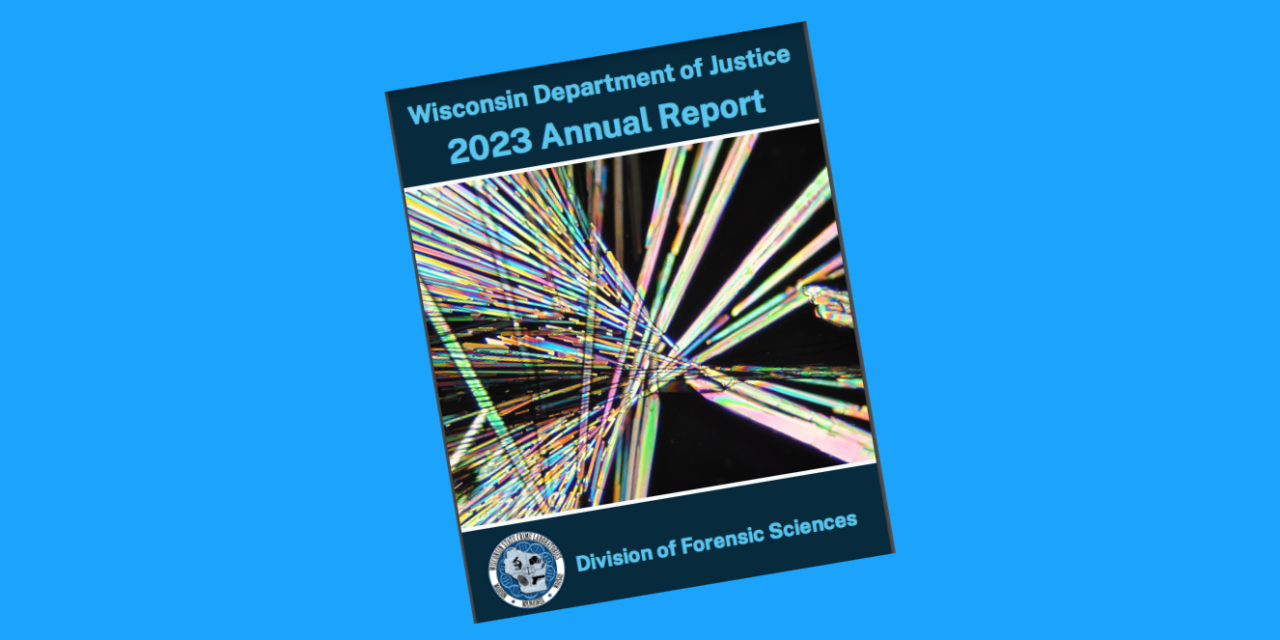Attorney General Josh Kaul today released the 2023 Annual Report for the Wisconsin Department of Justice (DOJ) Division of Forensic Sciences (DFS) crime laboratories.
“The work of our state crime labs is essential to protecting public safety and ensuring that criminal investigations and prosecutions lead to justice,” said Attorney General Josh Kaul. “The upcoming state budget must make the investment needed to adequately staff the labs.”
The Attorney General did not highlight the findings of the report regarding caseloads and backlogs. A cursory look shows it’s not a pretty picture.
The DNA casework output declined.

The mean turnaround time (TAT) in the Controlled Substances Unit skyrocketed from 84 to 110 days.
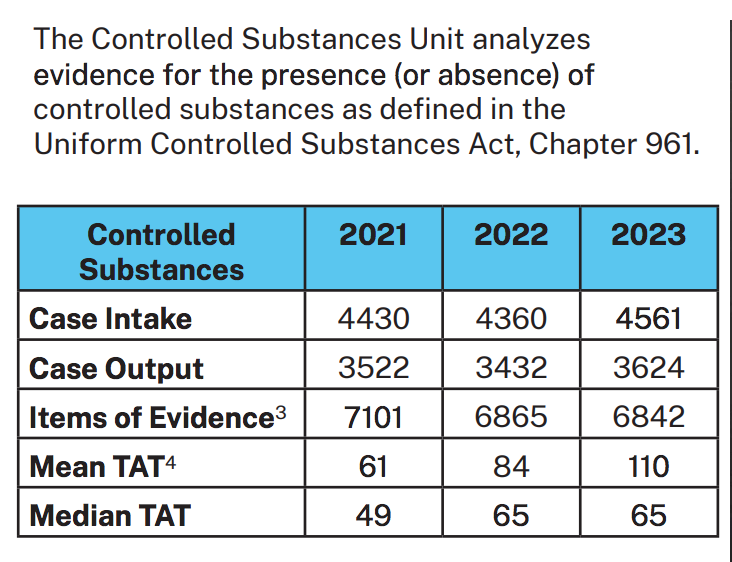
Although the Toxicology unit’s case intake declined by more than 800 cases and the mean turnaround time improved, they did not catch up on the backlog. The unit’s output declined by 978 cases.
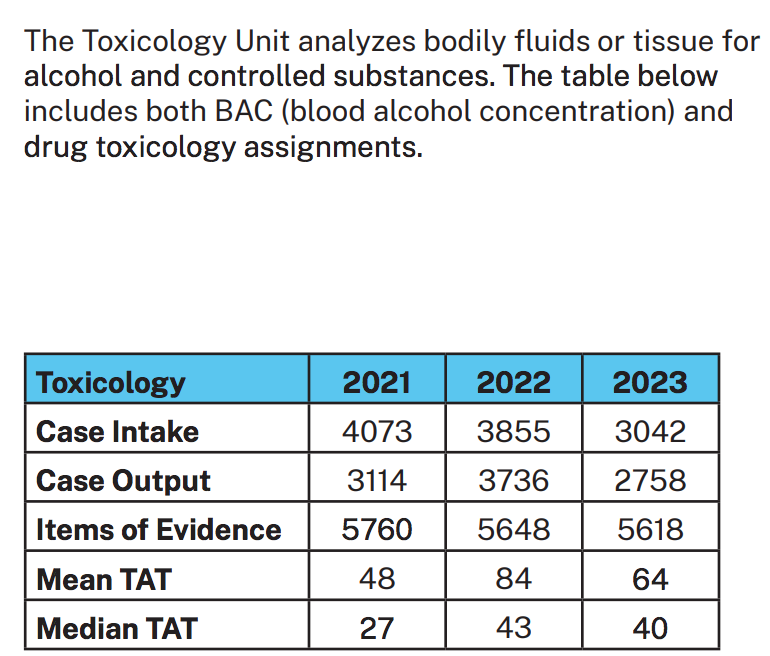
The mean turnaround time for DNA casework got much worse, as did the median TAT.
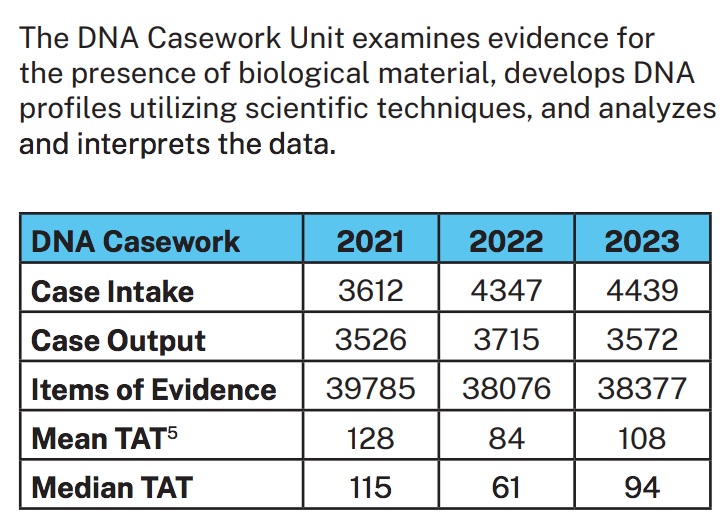
The number of samples submitted to the DNA Databank Unit increased by more than 2,000, but the number of leads reported to law enforcement declined and turnaround time also increased.
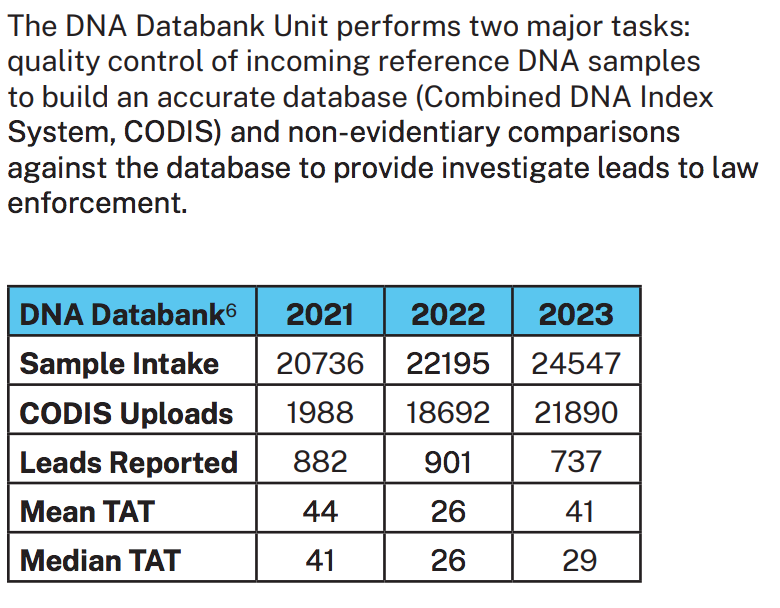
The number of latent prints and footwear impressions cases submitted to Kaul’s lab both declined in 2023, as did the overall number of pieces of evidence. Latent print turnaround times improved by 2 days (mean) but the average TAT for Footwear impressions analysis increased by 12 days.
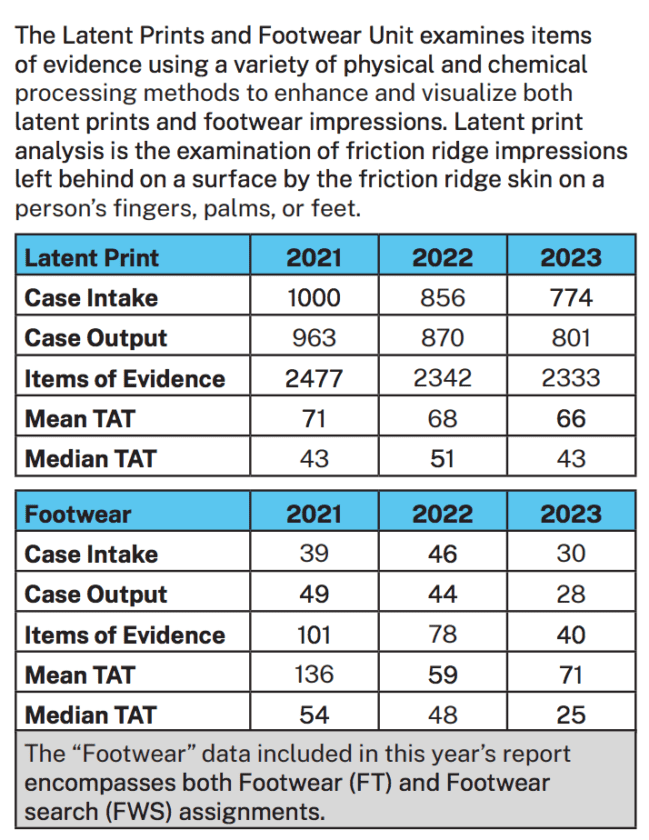
Imaging caseload is down. The amount of evidence analyzed was significantly less (89 compared to 179 in 2022). The average TAT improved by 4 days.
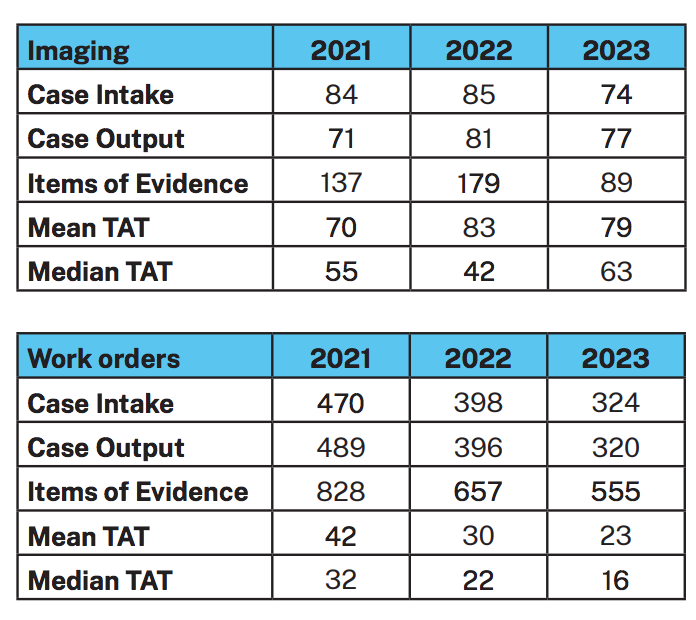
The Firearms and Toolmarks unit saw it’s Firearms case input decrease by 34 year over year. The case output, however, declined by 71 and the mean turnaround time increased by 10 days.
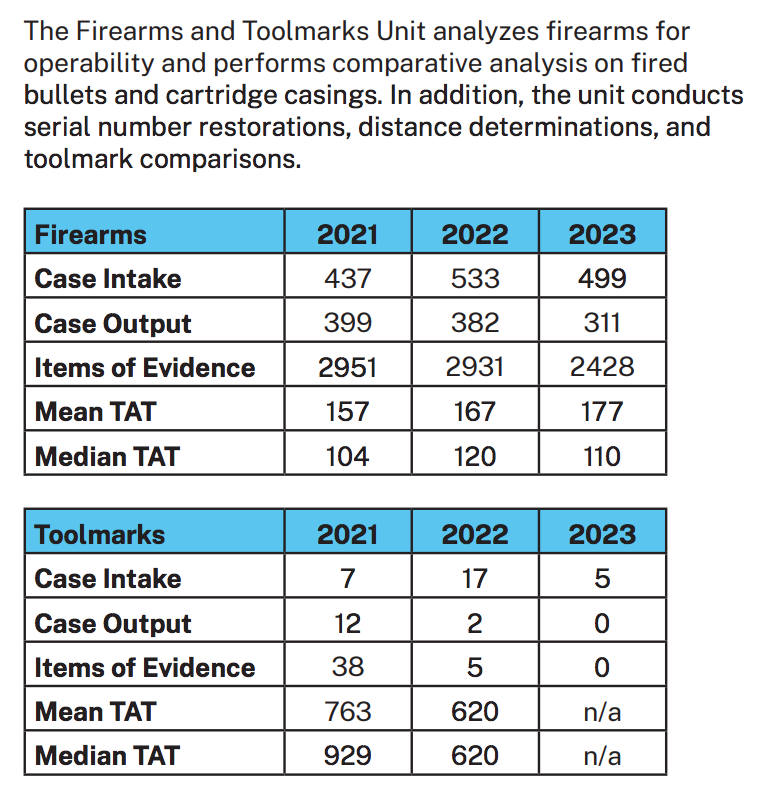
The Trace Evidence Unit took in ten fewer cases but their output increased by 10 percent in part because there was an overall decrease in items of evidence to analyze. However the Mean Turnaround Time in the Trace Evidence Unit ballooned from 79 to 202 days.
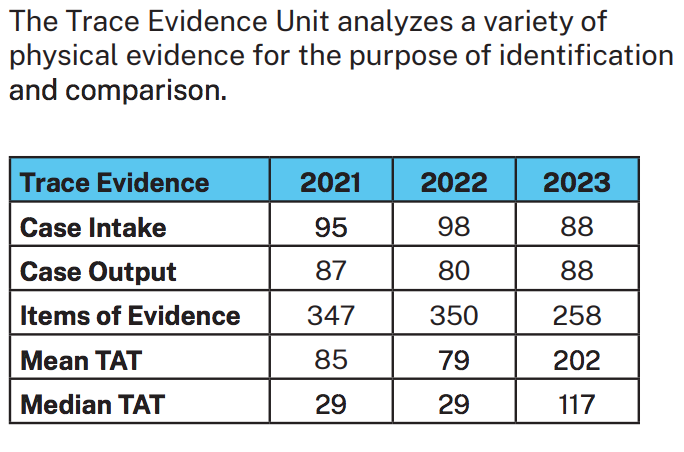
The Crime Scene Response office was utilized less in 2023 than the previous two years.
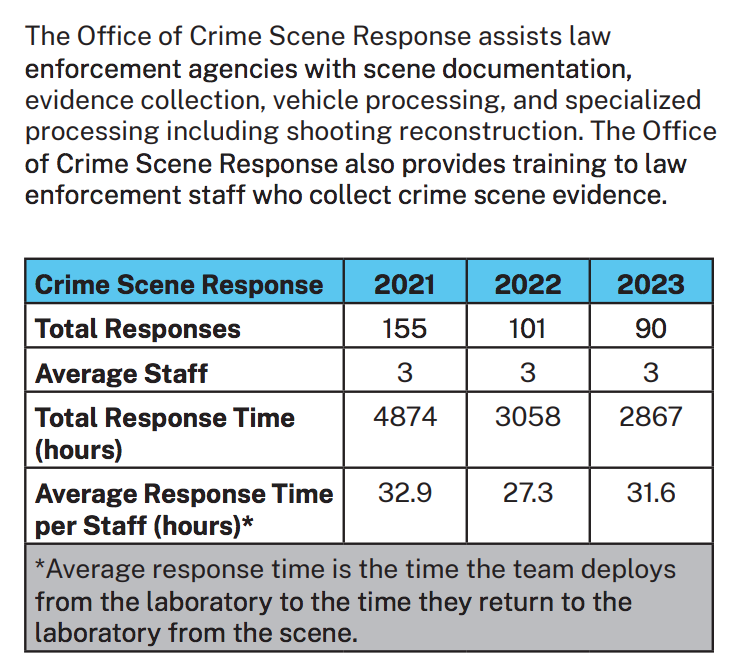
The Division of Forensic Sciences (DFS) was established as an independent division of Wisconsin DOJ in 2019, though the Wisconsin State Crime Laboratory (WSCL) was originally established in 1947. DFS employs over 190 people—including forensic scientists, technicians, evidence specialists, and crime scene response professionals—and offers impartial forensic analysis in the following areas: toxicology, drug identification, biology/DNA analysis, DNA database, trace evidence analysis, firearms examination, toolmark examination, latent print examination, footwear analysis, ten print comparison, forensic imaging, and video analysis. DFS also staffs on-call Crime Scene Response Units, located at each laboratory, to assist law enforcement at major crime scenes by processing the crime scene and maintaining evidence integrity.
The Wisconsin State Crime Laboratory is the only full-service forensic science laboratory system in Wisconsin. WSCL is not a diagnostic laboratory system; the circumstances of each case submitted to DFS are unique.

